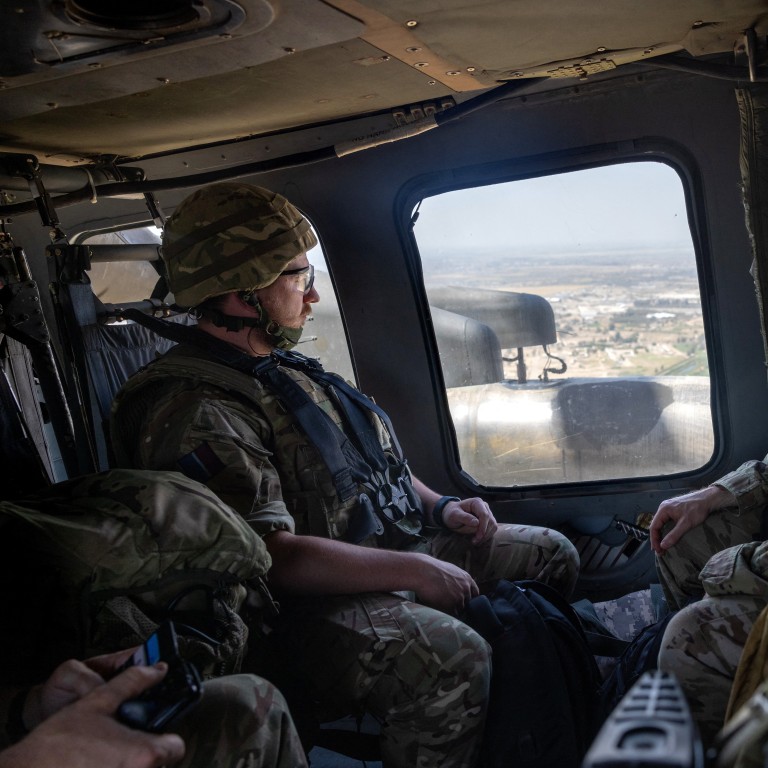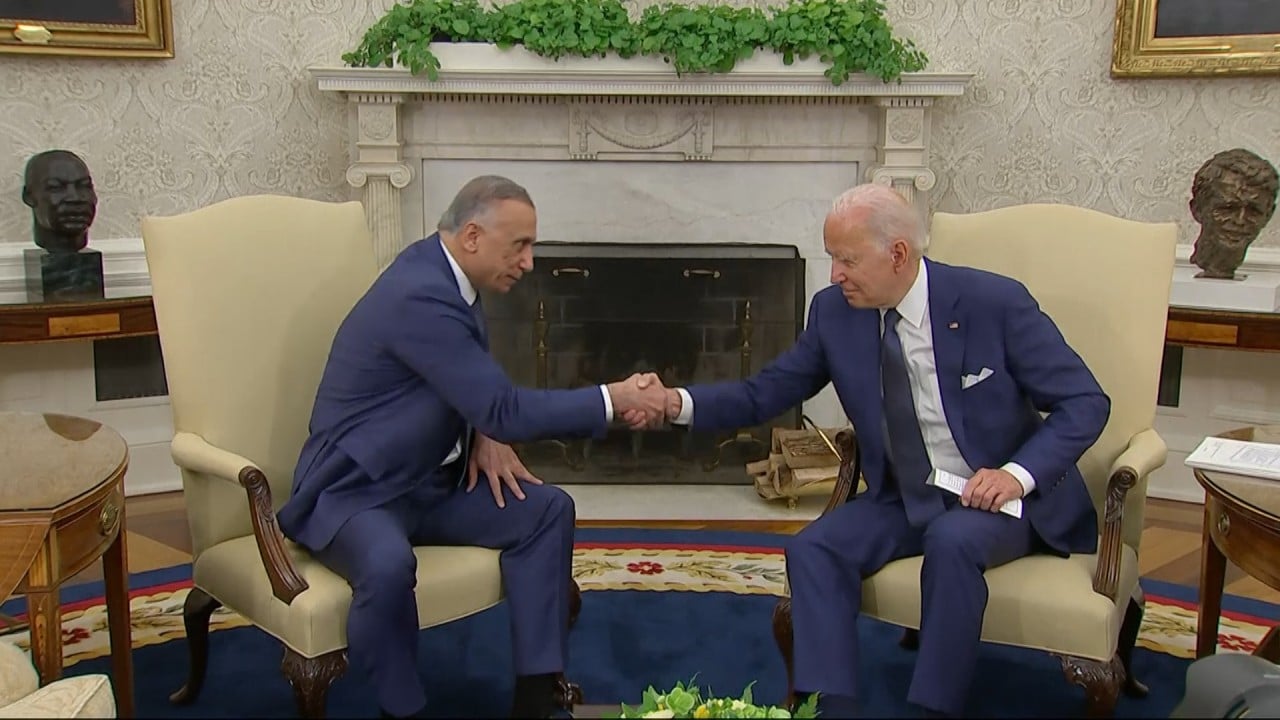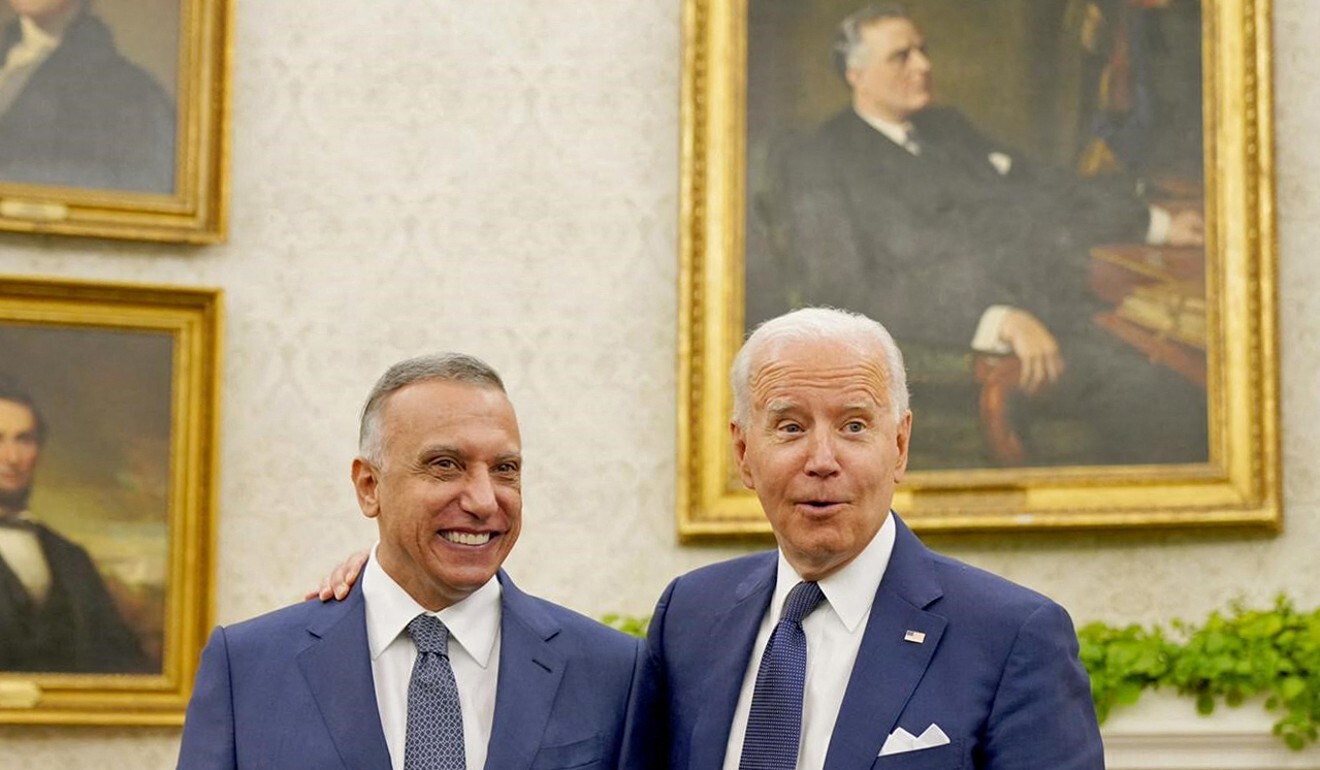
Iraq troop withdrawal deal marks latest phase in US shift to Asia-Pacific
- This week’s agreement to pull all combat soldiers out of the country comes as the Biden administration focuses on China
- Middle East will still play an important role in Washington’s strategic thinking and the armed forces maintain a large presence in other parts of the region
The recent US announcement that it will pull combat troops out of Iraq continues its shift of focus towards the Asia-Pacific as China becomes its top priority.
“Our role in Iraq … it’s just to be available, to continue to train, to assist, to help and to deal with Isis as it arrives. But we’re not going to be, by the end of the year, in a combat mission,” Biden said.
There are about 2,500 American military personnel stationed in Iraq, although it is not known how many are performing a combat role.
The Pentagon had said that the US has never intended to keep troops in Iraq indefinitely, and the threat posed by Isis has been greatly diminished although it still poses a threat to Iraq and the region.

02:46
US President Biden seals deal with Iraq’s leader to end US combat mission in Iraq by late 2021
Observers said the security situation in Iraq has stabilised with US and coalition troops already focusing on training and support roles.
“Foreign investment and business interests in Iraq – including China’s – will not face major changes,” said Li Guofu, expert in Middle East studies at think tank China Institute of International Studies.
“The US military presence in Iraq will remain. Additionally, there are also many other US bases in the nearby countries in the Gulf region, which could backup and reinforce the armed forces in Iraq if needed.
China keen to step up in Mideast as US shifts focus to Indo-Pacific
The Biden administration has been relocating the US global strategic resources to focus on Indo-Pacific where it wants to concentrate on the challenge from China.
Besides Iraq, the Biden administration is also withdrawing its forces from Afghanistan after 20 years.
But despite the strategic shift, the Middle East will remain a key area for US interests, which means it will still maintain a large military presence and up to 300,000 service personnel remain stationed in the region.

“Unlike Afghanistan, we should not regard Biden’s strategic contraction from the Middle East as a large-scale withdrawal,” he said.
The US armed forces invaded Iraq in 2003 and withdrew in 2011. But former president Barack Obama then sent them back in 2014 after Isis militants seized large swathes of territory in Iraq and Syria and the Iraqi government asked for support. The US troops remained there even after Isis was driven from its last Iraqi stronghold in 2017.

